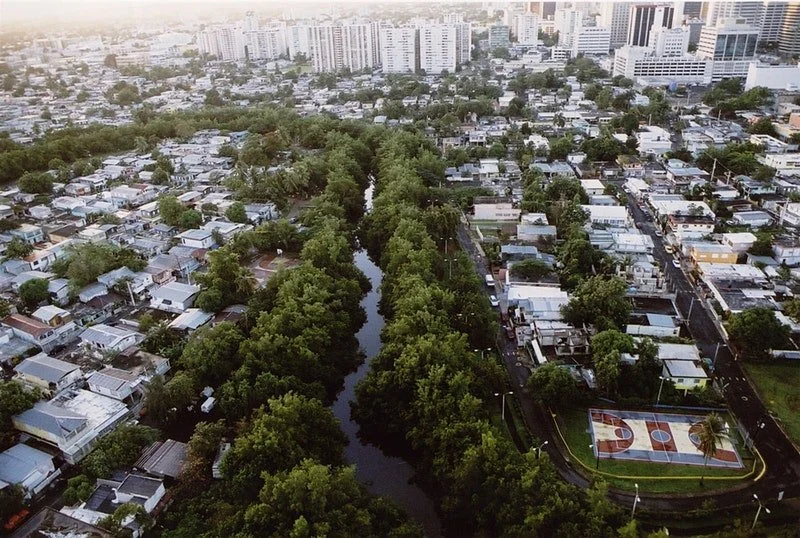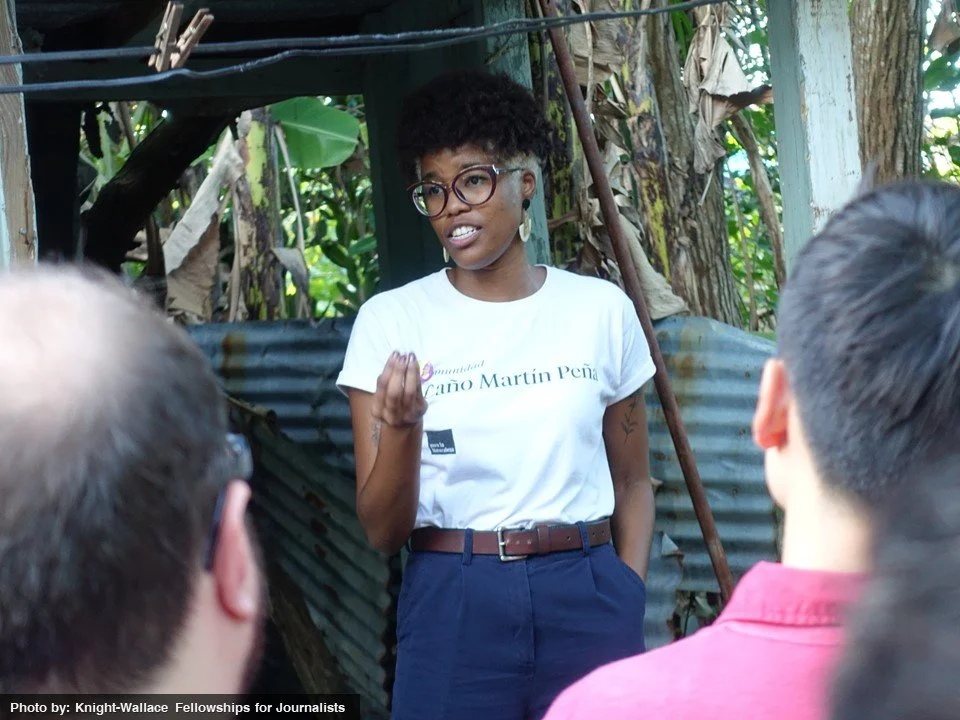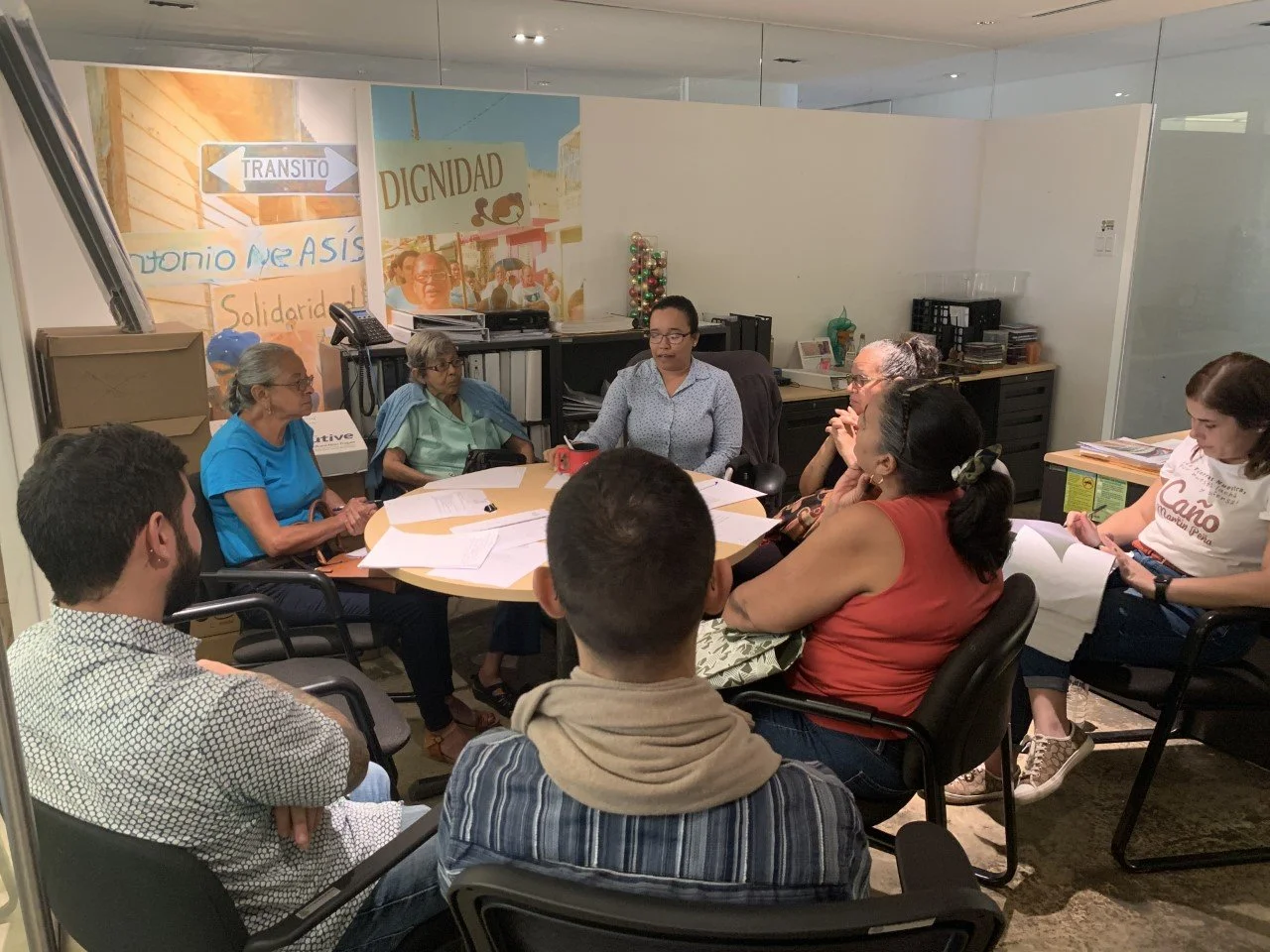Practices for Effective Engagement and Ethical Use of Information in Assessing Climate Adaptation Barriers and Needs Experienced by Northwest Coastal Tribes
Dec 12 | 1:00 - 2:00 PM ET / 10:00 - 11:00 AM PT
On December 12, 2024, the Climigration Network, American Society of Adaptation Professionals, and Harvard Law School’s Environmental & Energy Law Program hosted a conversation with the Tribal Coastal Resilience Portfolio of the Northwest Climate Resilience Collaborative on: “Practices for Effective Engagement and Ethical Use of Information in Assessing Climate Adaptation Barriers and Needs Experienced by Northwest Coastal Tribes”
The Tribal Coastal Resilience Portfolio recently completed an assessment of the state of climate adaptation among Northwest coastal Tribes, including Tribes’ experience of key barriers and needs which, if addressed, could help advance Tribal resilience. This assessment was informed by a review of Tribal climate documents and other relevant reports, as well as a series of listening sessions with Tribal staff, citizens and elected officials.The resulting report, which has received wide media attention since its release in August 2024, aims to build awareness of Tribes’ adaptation challenges among funders, policy makers, climate service providers and others to mobilize necessary action in support of the climate adaptation efforts of Northwest coastal Tribes.
This presentation provided a brief summary of the report’s key findings, but focused primarily on the research team’s practices for promoting effective Tribal engagement and ensuring ethical use of Tribal information in completing the assessment and its ongoing work.
The Northwest Climate Resilience Collaborative’s Tribal Coastal Resilience Portfolio is co-led by the Affiliated Tribes of Northwest Indians and the University of Washington Climate Impacts Group, with partners Washington Sea Grant and Western Washington University.
Materials
Recording: Watch a recording of the webinar below or on the Tribal Coastal Resilience Portfolio’s assessment report landing page, here.
Q&A and Linked Resources: There were many great questions shared that we did not have the time to address in the webinar. The Tribal Coastal Resilience Portfolio team drafted written answers to all questions posed in the webinar Q&A, which you can find here, with links to resources shared in the chat.
Reflections: Climigration Network member Meghan Sullivan wrote a brief blog on her key takeaways from the session, here. She explores how the insights shared reinforce that effective engagement goes beyond technical solutions; it requires a commitment to respect, shared decision-making, and honoring Tribal sovereignty.
“ᏗᏂᏠᎯ ᎤᏪᏯ (Meet Me at the Creek)” Film Screening & Discussion
May 8 | 4:00 - 5:00 PM ET / 1:00 - 2:00 PM PT
Climigration Network members met on May 8 at 4-5 PM ET / 1-2 PM PT for a screening of “ᏗᏂᏠᎯ ᎤᏪᏯ (Meet Me at the Creek),” a story of interconnectedness and Cherokee values through the lifelong fight of Rebecca Jim, a Cherokee Nation citizen and Waterkeeper Warrior (and Climigration Network Council Member), as she leads the effort to restore Tar Creek located in Miami, Oklahoma.
The event featured a screening of the short film and a discussion with Loren Waters, the filmmaker, and Rebecca Jim:
In addition to her roles as Tar Creekkeeper and founder of Local Environmental Action Demanded (LEAD), Rebecca Jim serves on the Anthropocene Alliance Board of Directors and Climigration Network Council.
Loren Waters is an accomplished filmmaker and storyteller from the Cherokee Nation and Kiowa Tribe. She has worked on notable films and television shows including Reservation Dogs, Fancy Dance, and Killers of the Flower Moon. Her work centers environmental knowledge, culture revitalization, and Indigenous futurity through authentic and accurate storytelling rooted in community collaboration. Learn more about the film here: https://lorenwaters.com/meet-me-at-the-creek
New Alaska Native Tribal Health Consortium Report
December 12 | 4:00 - 5:00 PM ET / 1:00 - 2:00 PM PT
Jackie Qataliña Schaeffer, Director of Climate Initiatives at the Alaska Native Tribal Health Consortium, and Twyla Thurmond, a Climigration Network Council member from the Native Village of Shishmaref, presented on the recently released report: “The Unmet Needs of Environmentally Threatened Alaska Native Villages: Assessment and Recommendations.” The report offers recommendations to improve the effectiveness of federal and state government support for Alaska communities to address climate and environmental threats through risk reduction, protect-in-place, managed retreat, and relocation methods.
Recommendations to Improve Buyouts, from Program Managers & Recipients
March 1 | 4:00 - 5:30 PM ET / 1:00 - 2:30 PM PT
English:
Practitioners, community members, researchers, and advocates have long observed challenges with federally-financed home buyout programs. At the same time, demand for buyouts is growing in many areas and current programs and funding sources will not be able to meet communities’ and individuals’ needs for relocation support.
NRDC, in partnership with FEMA, CH Consulting, the Climigration Network, and The Nature Conservancy, convened two workshop series—one with buyout practitioners and program managers, and one with buyout participants and community leaders—to discuss shared challenges and identify practical recommendations for making buyouts faster, easier, and fairer.
The Climigration Network hosted an event on 3/1 to share the recommendations developed in this project, and engage in a panel discussion with buyout practitioners, recipients, and project partners. View the event recording in English here.
Español:
Los profesionales, los miembros de la comunidad, los investigadores y los defensores han observado durante mucho tiempo los desafíos de los programas de compra total (Buyouts) de viviendas financiados por el gobierno federal. Al mismo tiempo, la demanda de adquisiciones está creciendo en muchas áreas y los programas actuales y las fuentes de financiamiento no podrán satisfacer las necesidades de apoyo para la reubicación de las comunidades y las personas.
NRDC, en asociación con FEMA, CH Consulting, Climigration Network y The Nature Conservancy, convocó dos series de talleres, uno con profesionales en compra total y administradores de programas, y otro con participantes de la compra total y líderes comunitarios, para discutir desafíos compartidos e identificar recomendaciones prácticas para hacer compras más rápidas, más fáciles y m y más justas.
La Climigration Network organizó un evento el 1 de marzo para compartir las recomendaciones desarrolladas en este proyecto y tomar parte en una mesa redonda con practicantes de compra, recipientes y compañeros de proyecto. Ver la grabación del evento en español aquí.
Community Land Trust Series:
Learning from the Caño Martín Peña ENLACE Project
March 9, 2022, from 1-2 PM EST & March 16, 2022, from 2-3 PM EDT
The Climigration Network’s Ecosystems & People Workgroup is hosting a Community Land Trust Series, with the first 2 sessions focused on Learning from the Caño Martín Peña ENLACE Project.
The Caño Martín Peña ENLACE Project is a collaborative working in San Juan, Puerto Rico, to restore the 3.75-mile Caño Martín Peña estuarine channel in the heart of the city, and to promote the urban, social, and economic development of its eight adjacent communities. The ENLACE Project consists of the Caño Martín Peña ENLACE Corporation, the G-8, Inc., and the Caño Martín Peña Community Land Trust, as well as a large group of partners that includes universities, foundations, and private and public organizations.
In the first 2 sessions, we learned about this innovative environmental justice and social transformation initiative and heard from ENLACE's Environmental Affairs Manager, Estrella D. Santiago Pérez, Esq., and ENLACE's Housing Manager, Jennifer Rivera De Jesús, about the project’s approach for community involvement and relocation, and how a community land trust can help prevent gentrification and involuntary displacement.
March 9, 1-2 PM EST: Caño Martín Peña ENLACE Project Overview
Estrella D. Santiago Pérez, Esq., Environmental Affairs Manager for the ENLACE Project
You can also learn more about the project in this 15-minute, award-winning video Agua Mala and in this brochure, Transforming a City.
Session Recording: March 9, 2022 - Caño Martín Peña ENLACE Project Overview
March 16, 2-3 PM EDT: Community Involvement & Relocation Process
Jennifer Rivera De Jesús, Housing Manager for the ENLACE Project
María Victoria Castro De Jesús, Member of ENLACE's Relocation Committee, and President of the Buena Vista Santurce Community Board, member of the Grupo de las Ocho Comunidades Aledañas al Caño Martín Peña, Inc.
Zorimar Rodríguez Díaz, Housing Coordinator for the ENLACE Project
Session Recording: March 16, 2022 - ENLACE Project Community Involvement & Relocation Process (Please note that this session had simultaneous interpretation.)
Speaker Bios
Estrella D. Santiago Pérez, Esq., is the Environmental Affairs Manager of the Corporación del Proyecto ENLACE del Caño Martín Peña (ENLACE). Ms. Santiago Pérez is in charge of ensuring ENLACE’s compliance with the governing policies and implementation of improvements program on environmental issues included in the Comprehensive Development and Land Use Plan for the Caño Martín Peña Special Planning District. Ms. Santiago Perez holds a Bachelor's Degree in Biology from the University of Puerto Rico, Rio Piedras campus, and a Juris Doctor from the School of Law of the University of Puerto Rico. Before working for ENLACE, Ms. Santiago Pérez worked as an environmental consultant and community environmental lobbyist.
Jennifer Rivera De Jesús, Housing Manager of the Corporación del Proyecto ENLACE del Caño Martín Peña (ENLACE), has a Master's degree in Architecture, an Advanced Course Certification of the Uniform Relocation Act and has been in ENLACE since 2015, when she participated in the AmeriCorps VISTA volunteer program. As the Housing Manager, Jennifer supervises and manages the acquisition and relocation processes required for the Comprehensive Development Plan, including the dredging of the Caño Martín Peña, with the support of the Housing Committee composed of community leaders and a team of coordinators and volunteers. Also, she manages housing development strategies to attend to the needs of the families and ensures citizen participation.
María Victoria Castro De Jesús is a member of ENLACE's Relocation Committee and President of the Buena Vista Santurce Community Board, member of the Grupo de las Ocho Comunidades Aledañas al Caño Martín Peña, Inc. As a child, María Victoria Castro lived at Parada 26 in Santurce, Puerto Rico until, after a condemnation and eviction process, she moved to Cupey. When she arrived in Cupey, the house had no potable water service and her family depended on a public cistern. As a result, at the age of 13, she moved with her mother to the Buena Vista Santurce community. In the District, Vicky, as her loved ones call her, grew up and saw her sons and daughter grow up. She has been part of different community organizations, starting by participating in the partisan meetings of her community. Later, she became part of the Buena Vista Santurce Community Board for more than a decade, serving as president for the past 13 years approximately. María Victoria was also part of the organization of recreational activities in the community such as bingo and Zumba. After living in her community for 40 years, she was relocated by the ENLACE Project within the Caño Martin Peña District and has been a member of the Relocation Committee for approximately 4 years. For her, the main purpose of community leadership is to help the residents. She finds it fulfilling, rewarding and motivating to be able to serve her neighbors and have them come to her for help.
“Climate Justice in Frontline Communities: Here’s how to (really) help”
Thursday, September 10, 2020
Presenters: Katherine Egland and Harriet Festing, Higher Ground
Description: The Climigration Network Learning Community was honored to host a very special 90-minute presentation and discussion on Thursday, September 10 from 3-4:30 PM ET. In lieu of the many compounding crises across the country, the Climigration Network is deeply privileged to have leaders from frontline communities join us to share their knowledge on how to help affected residents with the ongoing impacts of climate change and environmental injustice. In this session, Harriet Festing, Director of Anthropocene Alliance, introduced Higher Ground to our Learning Community. Her introduction was followed by a presentation from Katherine Egland. Katherine is a flood and BP oil spill survivor, a member of the Higher Ground Council, and co-founder of the Education, Economics, Environmental, Climate and Health Organization (EEECHO), a Gulf Coast environmental and social justice coalition. Katherine also chairs the Environmental and Climate Justice Committee for the National Board of Directors of NAACP and is the co-author of a op-ed in The Hill, "Climate justice in frontline communities: Here's how to (really) help". Katherine's presentation was followed by an extended discussion of how Climigration Network members and the Learning Community can directly foster meaningful relationships and collaborations between academics, practitioners, and the communities they seek to serve.
We encourage participants to read the this op-ed, linked from The Hill, and to watch the recording of the plenary session below! (The recording does not include the breakout sessions.)
Planned Retreat Approaches to Support Building Long-term Climate Resilience
Thursday, June 25, 2020
Presenters: Dr. Brent Doberstein, Dr. Patrick Saunders-Hastings, Michael Bernard, John Sommerville
Description: Dr. Doberstein and the project team shared findings from an environmental scan and current state analysis of planned retreat in Canada and relevant international contexts, prepared for Natural Resources Canada. The team conducted a comprehensive review of planned retreat in the broader context of climate change adaptation processes, teasing out key themes related to triggers, sources of resistance, barriers and enablers of retreat. Analyses informed the development of a set of good practices. Drawing on three case studies of planned retreat discussions and programs from Surrey, BC; Lake Erie, ON; and Gatineau, PQ, Dr. Doberstein discussed key lessons learned and lifted up good practices for learning and replication. This Learning Session delved into how climate migration looks outside of the U.S. policy and bureaucratic framework.
Watch the session below (the recording does not include breakout group conversations).
Fiscal Challenges of Climate Change and Implications for Climate Relocation
Thursday, May 28, 2020
Presenter: Linda Shi, Assistant Professor, Cornell University
Recent disasters and growing concerns about climate change have spurred calls for cities to retreat from and avoid developing in coastal areas. Instead, cities have doubled down on waterfront development. This Learning Session provides an overview of the relationship between local fiscal budgeting, land use planning, and climate change. It shares evidence from Massachusetts and Florida on the impact of sea level rise on local tax revenues, and the implications of this on municipal service provision, adaptation responses, and regional dynamics of housing and inequality of either in-situ adaptation or climate relocation. The session offered an opportunity for practitioners to reflect on how municipalities can respond to fiscal constraints on coastal adaptation, and how they can anticipate the future fiscal impacts of sea level rise.
Watch the session below (the recording does not include breakout group conversations).
Neighborhood-level Resilience to Recurrent Flooding in the City of Hampton, Virginia
WEDNESDAY, APRIL 22, 2020
Presenter: Anamaria Bukvic, Assistant professor, Department of Geography, Virginia Tech
Guest Speaker: Skip Stiles, Executive Director, Wetlands Watch, Norfolk, VA
The Climigration Network explored the resilience towards coastal flooding among culturally, historically, and socioeconomically different urban neighborhoods in the City of Hampton, VA, with Anamaria Bukvic (Assistant professor, Department of Geography, Virginia Tech) and Skip Stiles (Executive Director, Wetlands Watch, Norfolk, VA). This Learning Session discussed the results from a household survey about residents’ confidence in ability to cope with recurrent flooding, their prior experiences with flood events, as well as support for different adaptation strategies including permanent relocation. Results show that residents living in the areas more exposed to storm surge and sea level rise also believe their personal vulnerability to flooding is higher. In all surveyed locations, the most frequently experienced flood impacts are school delays and closures, followed by difficulty commuting to work, businesses closures, and yard damage.
Watch the complete session below.
Making it Personal: Helping Vulnerable Neighborhoods to Talk About Long-Term Flood Risk
Thursday, February 27, 2020
Ever since Hurricane Sandy came barreling up the Atlantic Coast seven years ago, Piermont, NY, has strived to make their small Hudson River-front community resilient in the face of rising seas and more intense storms. The village has made more progress than many. But Piermont’s most vulnerable neighborhoods have gained little ground in having sustained conversations about longer-term options.
In 2018, three Climigration Network members - Kristin Marcell (NYS DEC’s Hudson River Estuary Program), Nava Tabak (Scenic Hudson), and Bennett Brooks (CBI) - decided to take a step into unchartered and risky territory: bringing together residents from Piermont’s four most at-risk neighborhoods to face the most daunting challenges, including the potential for moving away from the water’s edge. The project embraced several unique aspects:
Recruiting and training a small corps of local residents (referred to as liaisons) to help organize and manage discussions with neighbors
Translating vague flooding forecasts into something more tangible and hard to ignore: an individualized assessment of flood risk over the next forty years
Using a personal risk tolerance questionnaire to help residents take stock of their unique situation
Bringing together residents from the village’s most flood-prone neighborhoods to share their individual perspectives on risk and possible adaptation options
Watch the recording of Kristin, Nava, and Bennett sharing their recent experiences - from innovations and successes to lessons learned. Click here to download the presentation.
Catalyzing Community-led Projects on Climate Migration
Tuesday, June 4, 2019
The Climigration Network hosted the “Catalyzing Community-led Projects on Climate Migration” webinar on June 4, 2019. The webinar featured the five 2018 Climigration Awardees highlighting the work accomplished with their 2018 funding, sharing lessons learned, and outlining their next steps and vision for their work moving forward. (More information on the 2018 Climigration Awardees can be found here.)
Speakers (in order of presentations):
Harriet Festing, Anthropocene Alliance
David Kaye, C.J. Lewis, Cameron Wake, and Julia Peterson, UNH PowerPlay
Victoria Herrmann, The Arctic Institute, in coordination with The Lowlander Center
Jay Diener and Kirsten Howard, Seabrook-Hamptons Estuary Alliance
Robin Bronen, The Alaska Institute for Justice






